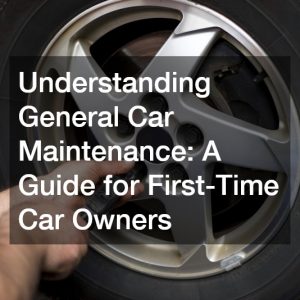Keeping your car running smoothly is essential for ensuring safety, maximizing vehicle lifespan, and maintaining a pleasurable driving experience. Regular maintenance not only helps in identifying potential issues before they become serious problems but also saves you from unexpected breakdowns and costly repairs. Whether you’re a seasoned driver or a novice car owner, understanding essential auto mechanic tips can significantly contribute to the longevity and performance of your vehicle.
In this comprehensive guide, we’ll explore a range of critical tips and practices designed to keep your car in optimal condition. From routine servicing and fluid checks to understanding essential maintenance areas such as tire rotation, brake replacement, and battery care, we’ll cover everything you need to know. Additionally, we’ll discuss the importance of roadside assistance, towing services, and working with reliable auto repair shops and vehicle insurance companies to ensure you’re well-prepared for any situation.
Furthermore, we’ll delve into proactive measures like checking the alignment, balancing tires, and ensuring proper tire inflation, which can boost fuel efficiency and extend tire life. Regular oil changes, filter replacements, and inspecting your vehicle’s suspension system are equally vital for maintaining optimal performance. By following these tips, you can avoid common automotive pitfalls and ensure many years of smooth and trouble-free driving. Whether you do the maintenance yourself or rely on a trusted mechanic, these insights will empower you to make informed decisions and protect your investment.
1. Get Your Car Serviced Regularly

One of the most fundamental auto mechanic tips is to ensure that your car is serviced regularly. Routine servicing by professionals at trusted auto body shops can help identify and address minor issues before they escalate into major problems. Regular servicing covers a wide range of checks, including oil changes, brake inspections, and fluid top-ups, all of which contribute to the car’s overall health and performance.
Sticking to the manufacturer’s recommended service schedule is crucial. This schedule is designed specifically for your vehicle model to optimize performance and longevity. Missing these service intervals can lead to undue wear and tear, affecting the car’s efficiency and safety. By being diligent with your service appointments, you ensure that your car remains in peak condition.
Additionally, a registered service history can enhance the resale value of your car. Potential buyers are more likely to trust a vehicle that has been consistently maintained by licensed professionals. Therefore, regular servicing not only helps in keeping your car running smoothly but also safeguards its value for the future.
2. Monitor the Most Critical Fluids
Monitoring critical fluids in your car is another essential aspect of car maintenance. Fluids like engine oil, coolant, brake fluid, and transmission fluid play vital roles in the functioning of your vehicle. Regularly checking and topping up these fluids can prevent breakdowns and costly auto repairs. Ignoring fluid levels can lead to engine overheating, reduced braking efficiency, and transmission problems.
It is advisable to familiarize yourself with your car’s fluid levels and the recommended intervals for checking and replacing them. For example, engine oil should be checked monthly, while coolant and brake fluid levels should be inspected every time you visit your auto mechanic. If you’re unsure about how to monitor these fluids, many roadside assistance services offer this as part of their routine checks.
In the event that you do run into fluid-related issues, having a reliable towing service on speed dial can be a lifesaver. Towing services can safely transport your vehicle to a nearby auto repair shop, where professionals can accurately diagnose and fix the problem. This can save you from attempting to drive a compromised vehicle, which could make matters worse.
3. Improve Your Car’s Fuel Efficiency
Improving fuel efficiency is not just about saving money—it’s also about reducing your environmental footprint. There are several auto mechanic tips that can help enhance your car’s fuel efficiency. Keeping your tires properly inflated is one such tip. Under-inflated tires create more resistance on the road, which leads to higher fuel consumption. Periodically check your tire pressure and ensure it matches the manufacturer’s recommendations.
Another critical aspect is ensuring that your car undergoes regular maintenance. Services like fuel injector cleaning and air filter replacement, which can be performed at local auto repairs, can significantly improve your car’s fuel economy. Dirty injectors and clogged air filters force the engine to work harder, thus consuming more fuel.
Additionally, try to avoid unnecessary idling and excessive speeding. Both habits waste fuel and put more wear and tear on your vehicle. If you’re stuck in traffic or waiting for someone, it’s more fuel-efficient to turn off the engine. Adopting these driving habits will not only improve your car’s mileage but also contribute to its overall longevity.
4. Know What to Do If Your Check Engine Light Comes On

A check engine light can be alarming, but it’s crucial not to ignore it. This warning light can indicate a variety of issues, ranging from minor to severe. One of the key auto mechanic tips is to address this light promptly. Ignoring a check engine light can lead to more significant problems down the road, resulting in expensive repairs.
When the check engine light comes on, the first step is to use an OBD-II scanner to read the error codes. If you don’t have this tool, most auto repair shops and many local auto repairs offer diagnostic services to identify the issue. Once you know what’s wrong, you can decide whether it’s a minor issue like a loose gas cap or something more severe that needs immediate attention.
If the problem demands urgent care and you’re unable to drive the car safely, contacting a towing service is the best course of action. Towing services can transport your vehicle to a nearby garage or automotive service center, where a professional mechanic can accurately diagnose and repair the issue. This ensures that your car remains safe and reliable.
5. Don’t Forget About Tire Rotation and Alignment
Tire rotation and alignment are crucial for extending the life of your tires and ensuring a smooth driving experience. Regular tire rotation helps in evenly distributing tire wear, which can enhance traction and improve fuel efficiency. One of the fundamental auto mechanic tips is to rotate your tires every 5,000 to 7,000 miles, or as recommended by your vehicle’s manufacturer.
Proper alignment is equally important. Misaligned tires can lead to uneven wear, decreased fuel efficiency, and compromised handling. If you notice your car pulling to one side or the steering wheel vibrating, it’s time to get your alignment checked. Auto body shops and auto repair shops offer alignment services that can correct these issues, ensuring that your vehicle runs smoothly.
Additionally, maintaining correct tire pressure is essential for tire longevity and vehicle safety. Under-inflated or over-inflated tires can cause poor vehicle handling and increase the risk of a blowout. The last thing you want is to have to contact a vehicle rental company because your vehicle is undrivable. Regularly checking tire pressure and keeping it at the recommended level can save you from unnecessary car repairs and expenses.
6. Recognize When Your Brakes Need Replacing
Brakes are one of the most critical components of your vehicle, and knowing when to replace them is essential. One of the key auto mechanic tips is to listen for unusual sounds like squeaking or grinding, which can indicate worn-out brake pads. Neglecting these signs can lead to longer stopping distances and increased risk of accidents.
Regular brake inspections are a must and should be part of your routine maintenance. Most auto repair shops offer comprehensive brake checks, including pad and rotor inspections. If your brakes feel spongy or if you notice any vibrations when stopping, it’s time to consult a professional.
Remember, timely brake replacement not only ensures your safety but also prevents more extensive (and expensive) car repairs. Replacing brake pads regularly can save the rotors from damage, which can be much costlier to repair. Investing in quality brake components and regular maintenance from a reputable auto repair shop is always a wise decision.
7. Understand the Essentials of Battery Maintenance

Battery maintenance is a crucial part of keeping your car running smoothly. One of the essential auto mechanic tips is to regularly check your battery terminals for corrosion. Corroded terminals can impede the flow of electricity and lead to starting issues. Cleaning the terminals with a solution of baking soda and water can prevent this problem.
Additionally, it’s essential to check the battery’s water levels if it’s not a maintenance-free battery. Low water levels can lead to reduced battery performance and a shorter lifespan. Most auto repair shops can perform this check for you during routine maintenance visits.
If your battery is more than three years old, it’s advisable to have it tested annually. Many automotive services and custom garages offer free battery testing to determine if it’s time for a replacement. Investing in a quality battery and following these maintenance tips can save you from unexpected breakdowns and the need for roadside assistance.
8. Keep Your Car’s Interior in Good Condition
While the exterior mechanics of your car are crucial for its operation, the interior should not be neglected. Keeping your car’s interior in good condition enhances your driving experience and maintains the vehicle’s resale value. One of the best auto mechanic tips for interior care is regular cleaning. Vacuuming the seats, carpets, and floor mats can prevent dirt and debris from accumulating.
Using seat covers and mats can protect the upholstery from spills, stains, and daily wear. If your car’s interior needs more attention, consider visiting custom garages that offer detailed cleaning and restoration services. They can treat leather seats, clean hard-to-reach areas, and even perform odor removal.
Additionally, investing in a sunshade can protect your dashboard and seats from UV damage. Prolonged sun exposure can cause fading and cracking, diminishing the interior’s appearance. Regular care and attention to your car’s interior not only make your driving experience more pleasant but also contribute to maintaining its value.
9. Remember the Basics of Cooling System Maintenance
Cooling system maintenance is vital for preventing your car from overheating. The cooling system regulates the engine’s temperature, ensuring it operates within optimal ranges. One of the crucial auto mechanic tips is to regularly check the coolant level and replenish it as needed. Low coolant levels can lead to engine overheating and significant damage.
Inspecting the radiator and coolant hoses for any signs of leaks or damage is also essential. Cracked hoses or a leaking radiator can lead to coolant loss and subsequent overheating. Automotive services often include these checks in their routine maintenance, ensuring your cooling system remains in top condition.
Additionally, replacing the coolant at the manufacturer’s recommended intervals is crucial. Old or contaminated coolant can lose its effectiveness, leading to inefficient cooling and potential engine damage. Seek professional advice from an automotive service center or local auto repair shop to determine the best replacement schedule for your vehicle.
10. Stay on Top of Your Auto Insurance

While not a physical aspect of car maintenance, staying on top of your auto insurance is equally important. Having the right coverage can save you from significant financial burdens in the event of an accident or theft. One of the essential auto mechanic tips is to regularly review your policy to ensure it aligns with your current needs.
It’s advisable to compare quotes from different vehicle insurance companies to find the best coverage at the most competitive rates. Insurance needs can change over time, and periodically reassessing your coverage can ensure you’re adequately protected.
Additionally, maintaining a good driving record and completing defensive driving courses can help lower your premiums. Some vehicle insurance companies also offer discounts for installing safety features or anti-theft devices in your car. Staying informed and proactive about your auto insurance can provide peace of mind and financial security.
In conclusion, keeping your car running smoothly requires a combination of regular maintenance, diligent monitoring, and being prepared for any situation. By following these essential auto mechanic tips, from regular servicing and fluid checks to understanding the importance of tire rotation, brake replacement, and battery care, you can ensure your vehicle remains in optimal condition. Additionally, staying informed about your auto insurance and seeking professional help when needed will contribute to a safe and enjoyable driving experience. Remember, proactive care and attention to detail can significantly extend the life of your car and enhance its performance for years to come.





